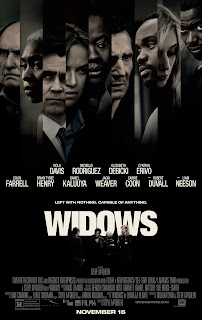 |
| Sun TV Magazine spot for The Diary of Evelyn Lau. |
Evelyn Lau, the daughter of Chinese immigrants, has it rough. She is a young writer bursting with talent, but her strict parents place abnormal obligations on her. In the opening scene, her mother takes Evelyn to the bathroom and places her on the scale, immediately slapping her and calling her "fat." Evelyn's father neglects her during this critical moment, demonstrating his partake in her daily abuse, his silence consenting to his wife's toxic verbal, physical, and psychological harassment.
 |
| Evelyn (Sandra Oh) turns to the wrong people for help. |
A life on the streets seems the best escape for fourteen-year-old Evelyn. She naively believes that staying with an older man could be safe, but he rapes her in a disturbing scene and blames her for "tempting him." She succumbs to his other advances, not out of desire or affection, but out of safety and comfort-- lacking at home. Except, they want to discard her immediately when the cops arrive. The social services soon have her in custody and they rule in her parents' favor-- for her to return back home. Evelyn has a major breakdown and is immediately drugged and placed in a facility-- a grave mistake considering no one cares about the extent of how damaged she is.
Eventually, two worlds seduce the teen into different directions-- the shotty group homes with too many rigid rules and the streets with its grimy men looking for prostitutes. She tries with both, falling fast for the latter, introduced to drinking and further sexual deprivatity. Through it all, however, she continues writing, her language evolving and maturing as fast as the destructive tornado of homelessness, drugs, and sex combined. She recites to these johns, these immoral older white men, like the most well-trained poetess, her oratory delivery quite concise and articulate, her words sharper than sword blades. They listen, feigning interest, only seeing her body as an instrument to desire. She uses them as they used her-- a machine, their ears.
 |
| Sandra Oh on playing Evelyn. |
It is no surprise that Sandra Oh beat out 2,000 actresses in her first on-camera role. She is downright riveting as the real-life poet, Evelyn Lau. Although Oh is a twenty-something playing a teenager, she vividly expresses child innocence and its thievery swept in the dangerous undercurrent of the street life. Her depth is remarkable. She conveys-- especially through devoid and lifeless eyes--how desperate decisions can take away pieces of the self that can perhaps never be regained. Oh's natural evolution from a shy, awkward girl with giant glasses and overlong bangs to a drug addicted femme showcases her gifted tenacity early on. Oh was nominated for a Gemini and won a Golden FIPA for Best Actress.
Director Sturla Gunnarsson adapted Evelyn Lau's book with Barry Stevens. It is a dark, bitter film to endure. Certain scenes fuel hatred for male behaviors. These people could have looked out for her, having known her age, but instead took advantage. After overcoming inappropriate lust, gross fetishising, and harmful self-hatred, a poet breaks free and finds her voice. It is a true testament of courage that Lau has survived a disgustingly foul place. Poetry saved her life like no one else could.
 |
| Real life Evelyn Lau is an award-winning poet, writer, and college professor, Lau was the third Poet Laureate of Vancouver. |
The Diary of Evelyn Lau's poignant ending suggests that though one can be awarded and well-received, some people (even in high circles) can still see a woman to objectify.















































